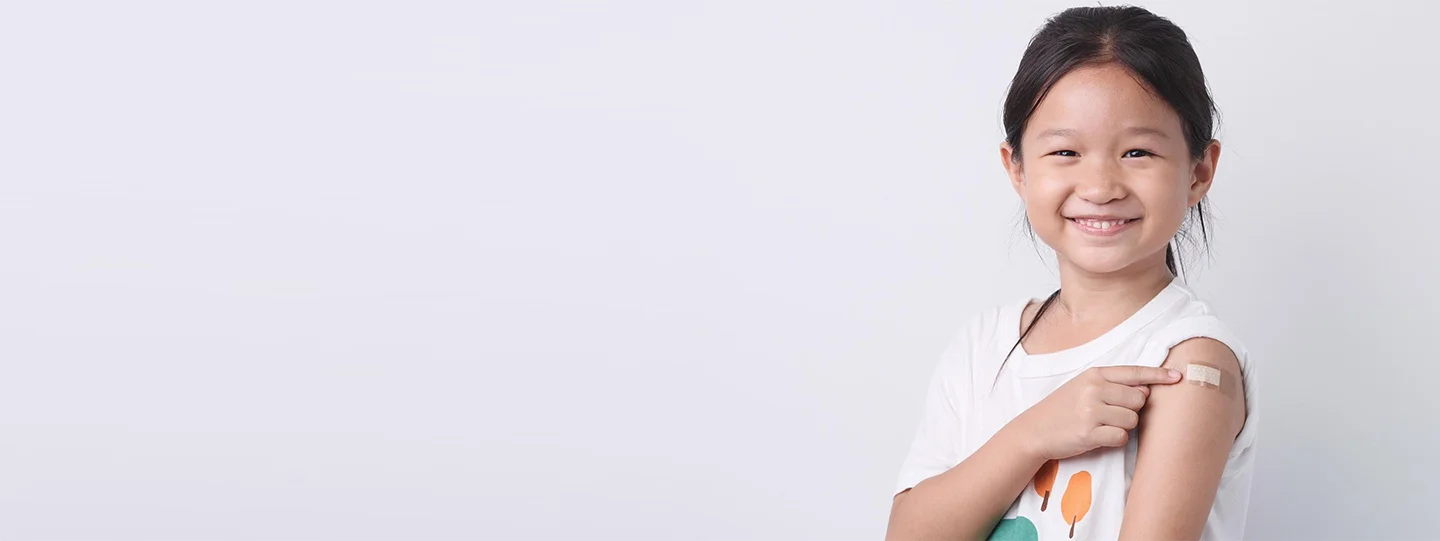Vaccination plays a crucial role in preventing various infectious diseases, and one such vaccine that has significantly contributed to public health is the chickenpox vaccine. Chickenpox, caused by the varicella-zoster virus, poses a considerable threat, particularly to young children. The chickenpox vaccine, a live attenuated vaccine, offers a preemptive strike against this contagious ailment. This article delves into the recommended age for administering the chickenpox vaccine, shedding light on the importance of early vaccination in mitigating disease severity, preventing outbreaks, and safeguarding vulnerable populations. By exploring the vaccine schedule, boosters, effectiveness, and safety profile, we aim to provide a comprehensive understanding of why timely vaccination is a crucial component in the collective effort to curb the impact of chickenpox on individual health and community well-being.
Chickenpox Vaccine: An Overview
The chickenpox vaccine stands as a significant milestone in preventive medicine, offering protection against the varicella-zoster virus. This live attenuated vaccine primes the immune system without causing illness, proving instrumental in reducing the incidence and severity of chickenpox. Administered in two doses, the first typically between 12 and 15 months and the second between 4 and 6 years, the vaccine not only shields individuals from complications but also curtails the spread of the virus within communities. This overview explores the fundamental aspects of the chickenpox vaccine, highlighting its role in fortifying public health against a highly contagious and potentially serious disease.
Age for Chickenpox Vaccination
- First dose: The recommended age for chickenpox vaccination is strategically designed to maximize its effectiveness in providing early and robust protection. The first dose of the vaccine is typically administered between 12 and 15 months, a period when infants and toddlers are more susceptible to severe cases of chickenpox. This early immunization helps reduce the severity of the disease and minimizes the risk of complications in this vulnerable age group.
- Second dose: A second dose is recommended between the ages of 4 and 6 years, serving as a booster to enhance and extend the immunity acquired from the initial dose. By vaccinating at these specific intervals, healthcare professionals aim to establish a strong and sustained immune response, offering long-lasting protection into adolescence and adulthood.
This age specific vaccination strategy not only shields individual recipients from potential complications of chickenpox but also contributes to the broader goal of community immunity. By vaccinating children in their formative years, the spread of the varicella zoster virus is curtailed, preventing outbreaks and protecting those who may be more susceptible to serve consequences of the disease. The recommended age for chickenpox vaccination thus emerges as a pivotal component in the collective effort to ensure the well-being of both individuals and communities.
Importance of Early Vaccination
- Reducing Disease Severity: Vaccinating children against chickenpox at an early age is crucial for reducing the severity of the disease. Infants and young children are more susceptible to complications such as pneumonia and bacterial infection if the contract chickenpox. By vaccinating early, these serious complications can be prevented.
- Preventing Outbreaks: Vaccinating children in the recommended timeframe helps prevent outbreaks of chickenpox in schools and communities. Since chickenpox is highly contagious, unvaccinated individuals can easily spread the virus to others. Timely vaccination breaks the chain of transmission and contributes to community immunity.
- Protecting Vulnerable Populations: Some individuals such as pregnant women and individuals with weakened immune systems, are at a higher risk of severe complications from chickenpox. By vaccinating children early, indirectly protect these vulnerable population by reducing the overall prevalence of the virus in the community.
Chickenpox Vaccine: Vaccine Schedule and Boosters
- Vaccine Schedule: The standard schedule for chickenpox vaccination involves two doses, as mentioned earlier. The first dose provides primary protection, while the second dose acts as a booster, ensuring a robust and sustained immune response.
- Booster Shots: While the two-dose schedule is effective in providing long-lasting immunity for the majority of individuals, booster shots may be recommended in certain situations. Adolescents and adults who have not been previously vaccinated may receive the two-dose series, and catch-up vaccination is often available for those who missed the recommended childhood doses.
Effectiveness and Safety
- Vaccine effectiveness: The chickenpox vaccine has demonstrated high effectiveness in preventing the onset and severity of chickenpox. Studies consistently indicate that vaccinated individuals who do contract the virus experience milder cases with fewer skin lesions and a shorter duration of illness compared to their unvaccinated counterparts. The vaccine's efficacy in reducing the overall burden of the disease is a testament to its role in safeguarding public health.
- Safety: In terms of safety, the chickenpox vaccine has a well-established and favorable profile. Common side effects are generally mild and include soreness at the injection site and a mild rash. Serious side effects are rare, emphasizing the vaccine's overall safety. The benefits of vaccination, including the prevention of the disease and its potential complications, far outweigh the minimal risks associated with the vaccine.
It is crucial for individuals and caregivers to be aware of the vaccine's effectiveness and safety, fostering confidence in its use as a preventive measure. As with any vaccine, continuous monitoring and research contribute to refining vaccination strategies and ensuring the ongoing safety and efficacy of the chickenpox vaccine in the collective pursuit of public health.
Conclusion
In conclusion, the chickenpox vaccine is a valuable in preventing the spread and impact of chickenpox, a highly contagious and potentially severe disease. Administering the first dose between 12 and 15 months and the second dose between 4 and 6 years provides optimal protection during childhood and beyond. Early vaccination not only protects the vaccinated individuals but also contributes to community immunity, reducing the overall burden of chickenpox and its associated complications. Understanding the recommended age for chickenpox vaccination and following the established vaccine schedule is crucial for ensuring the health and well-being of individuals and communities. As with any vaccine, consultation with healthcare professionals is essential to address individual concerns and ensure that vaccination is tailored to specific health needs.


